People with social anxiety dread some or all social interactions and spend a lot of time worrying about what others think of them, how they are perceived, and what will happen if they say or do the “wrong” thing.
Social anxiety can get in the way of dating, making friends, talking to coworkers, and makes social interactions more stressful and less enjoyable. Unfortunately, the most common ways people try to cope on their own with social anxiety can backfire and actually make them feel more anxious and insecure.
This guide will help you better understand the signs, symptoms, and causes of social anxiety while also giving step-by-step advice on how to overcome it.
Sections
- What is social anxiety disorder or social phobia?
- How to know if you have social anxiety disorder
- Signs and symptoms of social anxiety disorder
- What causes social anxiety?
- How is social anxiety disorder treated?
- How to overcome social anxiety as an adult
- Breaking bad habits that worsen anxiety
- Common questions
What is social anxiety disorder or social phobia?
Social anxiety describes the experience of feeling nervous, worried, or anxious about certain kinds of social situations or interactions. Because humans are naturally social creatures, almost everyone sometimes worries about making a bad impression, especially in important, difficult, or unfamiliar social situations.
Some people, however, experience excessive amounts of anxiety about what others think and feel about them, even in casual social interactions, which can make it difficult to function. Regular, excessive, or severe social anxiety may be a sign of social anxiety disorder, a common mental health issue that will affect about 12-13% of American adults at some point in their lives.[1][2]
How to know if you have social anxiety disorder
Almost everyone has experienced mild or occasional social anxiety, which is normal and usually not a sign of social anxiety disorder. This section will outline the differences between normal and abnormal levels of social anxiety, as well as information about the symptoms of social anxiety disorder.
“Normal” anxiety vs. social anxiety disorder
Social anxiety disorder is only diagnosed when a person’s symptoms are frequent and severe enough to lower their quality of life or when it becomes crippling or debilitating. Some of the differences between normal social anxiety and social anxiety disorder (which is also called “social phobia”) are outlined below.[3]
| Normal social anxiety | Social anxiety disorder |
|---|---|
| Anxiety is occasional or infrequent | Anxiety is regular or frequent |
| Anxiety is mild or feels “manageable” | Anxiety feels overwhelming/unmanageable |
| Level of anxiety makes sense for the situation | Fears are excessive or disproportionate |
| Does not interfere with routine/ability to function | Limits routine or impairs functioning |
| Does not prevent social interactions | Leads to avoidance of social interactions |
| Causes minimal distress or problems in life | Causes a lot of distress or problems in life |
Signs and symptoms of social anxiety disorder
People with social anxiety disorder worry a lot about being embarrassed, criticized, judged, or rejected by others. Their anxiety may show up only in certain situations (e.g., at work or large parties) or types of interactions (e.g., on dates or work meetings), or it may show up in almost all social situations. People with social anxiety disorder may experience frequent, intense, or excessive social anxiety. Their symptoms significantly limit their relationships or other aspects of daily life.[1][3]
Signs of social anxiety disorder (with examples)
Social anxiety disorder is common, but it can show up differently for each person. The signs of social anxiety can be more obvious in people who are naturally introverted, shy, or socially awkward. Keep in mind that introversion is not social anxiety. People who are naturally extraverted, good conversationalists, or who get a lot of practice using their social skills may have become better at “hiding” their social anxiety from other people but still report being significantly impacted by their symptoms.
Here are common examples of how the signs of social anxiety disorder can show up:[3][4][5][6][7]
- Overthinking conversations (e.g., mentally rehearsing or replaying conversations)
- Worry about “worst-case scenarios” (e.g., being paranoid and worried about being embarrassed or rejected)
- Assuming a worst-case scenario is true (e.g., believing no one likes or is interested in you)
- Feeling self-conscious in conversations (i.e., awkward, self-focused, or painfully shy)
- Unable to focus or concentrate in social interactions (i.e., mind goes blank or losing track)
- Extreme discomfort or awkwardness around others (e.g., blushing, feeling watched)
- Canceling plans because of feeling anxious or worried (e.g., dates, crowds, or meetings)
- Limiting interactions with people (e.g., avoiding dating, meetups, or making friends)
- Physical symptoms of anxiety or panic attacks (e.g., racing heart, shortness of breath)
- Trying too hard to make people like you (e.g., faking interest, exaggerating, or using a persona)
Symptoms of social anxiety disorder
Like all mental health conditions, social anxiety disorder can only be formally diagnosed by a licensed health or mental health professional during a counseling intake or clinical assessment.
If you have some of the following symptoms, you should consider setting up an appointment with a licensed counselor or health/mental health professional to confirm your diagnosis and explore treatment options:[3]
- Significant worry or anxiety about one or more social situations in which you may be negatively judged by others (e.g., dates, small talk, speeches, or meetings at work)
- Feeling afraid or worried that others will notice you are anxious and will judge you for it (e.g., being scared people will see your hands or voice shake when nervous)
- The feared social situations or interactions almost always make you feel nervous or afraid (e.g., consistent fear of speeches, dates, or parties)
- The level of anxiety or fear is excessive to the situation or the actual threat involved in the situation (e.g., panicking about casual interactions or small talk with a coworker)
- The feared social situations or interactions are either avoided or endured with intense distress, fear, or anxiety (e.g., canceling plans or going but feeling awkward while there)
- The anxiety and/or resulting avoidance interferes with your ability to function or causes you a lot of distress (e.g., spending a lot of time worrying, becoming isolated)
- The anxiety/avoidance has been occurring for at least 6 months and is not related to another cause or condition (i.e., is not the result of the effects of a drug, prescribed medication, life event, or other health or mental health condition)
Social anxiety disorder in children and teenagers
Some of the normal stages of social and emotional development may be confused as signs or symptoms of social anxiety disorder. For example, it’s normal for pre-teens and teens to be highly self-conscious, overly concerned about what their peers think, and anxious about rejection. Parents and caregivers should be concerned if these issues cause their child or teen to withdraw or isolate themselves, develop mood or behavior problems, or begin to interrupt their normal routine.[3]
What causes social anxiety?
Most social anxiety is caused by a natural, normal, and healthy desire for connection with others. Because humans are social creatures, we are “wired” to care about what other people think and feel about us because we know this affects our relationship with them. While this is a healthy and prosocial tendency, it also predisposes us to experience social anxiety, especially in situations where we feel pressured to make a good impression (e.g., a job interview or speech).[8]
At “normal” levels, social anxiety is situational or occasional in nature and usually doesn’t get in the way of living a normal, full, and happy life. Some people, however, develop a phobia (or intense fear) of social interactions and spend too much time and energy worrying about what others think of them.
Some people may be more prone to social anxiety disorder because of their genetics, personality, or psychological make-up. Others develop the condition because of certain negative past experiences like being bullied, teased, rejected, or experiencing trauma in childhood.[2]
When people cope with social anxiety by avoiding social situations, limiting their interactions, or trying too hard to control what people think of them, it tends to backfire. But these “safety behaviors” (things socially anxious people do/don’t do to avoid being judged or rejected) may actually lead to developing social anxiety disorder or can cause existing symptoms to get worse.[5][6][7]
How is social anxiety disorder treated?
Social anxiety disorder is a highly treatable condition, and therapy (sometimes in combination with medication) is highly effective for most people.[9] Therapy is a first-line treatment for social anxiety disorder and can help people with the condition learn better, more effective ways to cope with and reduce their symptoms.
It’s important to note that between 69-81% of people with social anxiety disorder also struggle with another mental illness like depression, addiction, or another anxiety disorder.[2] These conditions can also be treated with therapy or a combination of medication and therapy. The first step for most people who want treatment is usually to schedule an appointment with a licensed therapist, counselor, social worker, or psychologist.
During the first appointment, a licensed professional can verify whether or not a person has social anxiety disorder or another mental health condition and can also present options for specific kinds of treatment. Certain kinds of therapy like Cognitive Behavioral Therapy (CBT), exposure therapy, and Acceptance and Commitment Therapy (ACT) are all effective treatments for social anxiety.[2]
Depending on the severity of symptoms or whether or not a person has another condition as well, medications may also be recommended, with SSRIs, beta blockers, and benzodiazepines being the most commonly prescribed.[2] It’s important to view medication as part of treatment rather than as a standalone cure for anxiety. Group or individual therapy is also important to treat social anxiety and help a person learn how to live and deal with their symptoms.
We recommend BetterHelp for online therapy, since they offer unlimited messaging and a weekly session, and are cheaper than going to a therapist's office.
Their plans start at $64 per week. If you use this link, you get 20% off your first month at BetterHelp + a $50 coupon valid for any SocialSelf course: Click here to learn more about BetterHelp.
(To receive your $50 SocialSelf coupon, sign up with our link. Then, email BetterHelp’s order confirmation to us to receive your personal code. You can use this code for any of our courses.)
*People looking for ways to manage their symptoms naturally sometimes turn to natural remedies like herbal supplements as an alternative to prescribed drugs, but these also carry certain risks. Because most supplements are not FDA approved, they do not have to meet the same rigorous safety standards as prescription medications.
How to overcome social anxiety as an adult
In addition to seeking professional treatment for social anxiety, there are a number of ways you can work on your own to improve your social skills, reduce your anxiety, and develop more confidence. Below are 5 steps you can take to reduce your social anxiety on your own.
1. Improve your sleep, nutrition, and exercise
Sleep, nutrition, and exercise form the basis of your physical and mental health, so these should be priority items you address when working to manage symptoms of social anxiety. While it might not seem relevant, getting enough sleep, eating a nutritious diet, and getting enough exercise all have a direct effect on your mood, energy, and stress levels.
Improving these aspects of your lifestyle can help you get a headstart on improving your health and also can make it easier to cope with stress and anxiety.
Here are some simple ways to improve your sleep, nutrition, and exercise routine:[2]
- Nourish your body with nutritious foods (vs. empty calories or comfort foods)
- Drink at least 8 glasses of water per day to keep your body well hydrated
- Try to get at least 30 minutes of exercise per day
- Reduce your screen time and don’t sit down for hours at a time
- Get 7-9 hours of sleep per night
2. Start small and work your way up the fear ladder
Some of the triggers for your social anxiety may be bigger than others, and starting small is a good idea. Trying to tackle your biggest fear too soon can set you up for failure, which can be a huge setback when it comes to developing more confidence in yourself. A fear ladder (also called an exposure hierarchy) is a great tool to help you take small but measurable steps towards overcoming your fears.[9][10]
Everyone’s fear ladder will be a little different, but the idea is to put your smallest fear on the lowest rung and gradually work up to your biggest fear on the top rung. Keep in mind you may need to step on the same “rung” more than one time in order to overcome that fear and move up to the next one. Your “top rung” should represent something you really want or need to be able to do but don’t feel capable of right now because of your social anxiety.
Below is an example of a fear ladder for someone who has social anxiety at work.
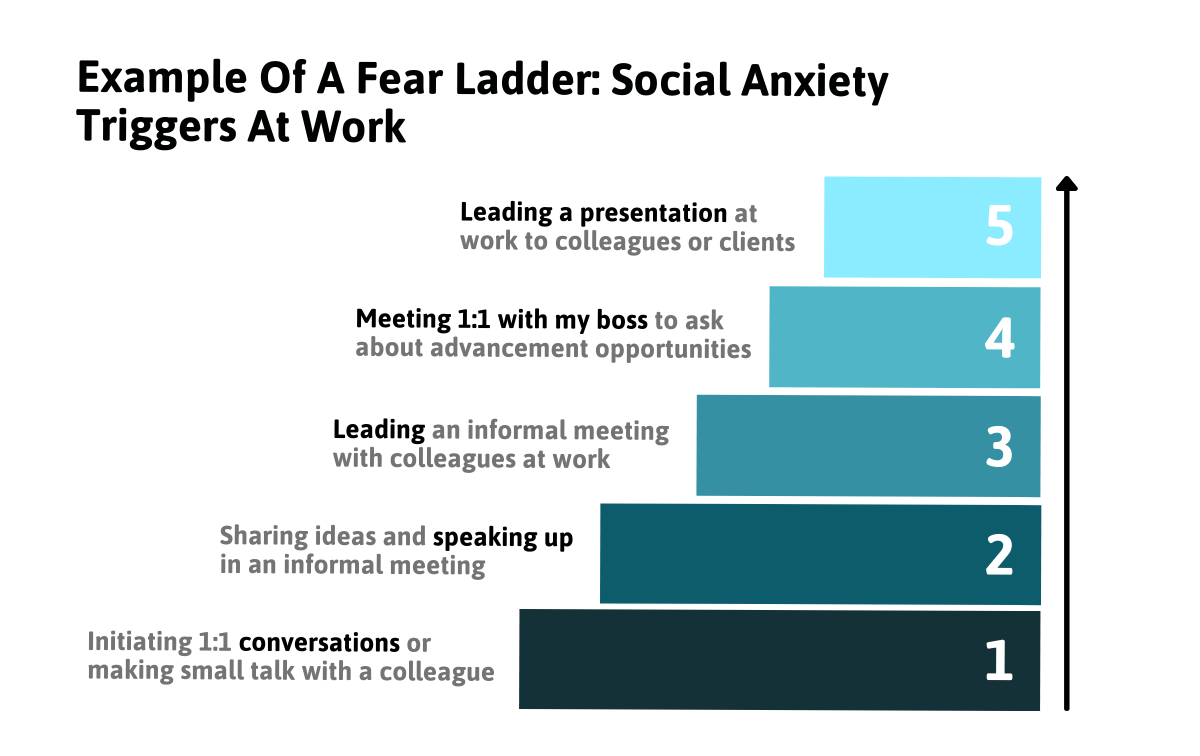
3. Practice your social skills daily
Social skills take time and practice to develop, especially if you’re a naturally introverted, shy, or awkward person. The best way to improve your social skills and become a better conversationalist is to get regular practice. Research shows that improving social skills can help to boost confidence and reduce symptoms of social anxiety.[4]
Make it a goal to start more conversations, have more small talk with strangers, and spend more time talking to people. This will help you develop more confidence, get some positive interactions under your belt, and also become more socially savvy.
Here are some easy ways to get daily practice using conversation and social skills:
- Ask cashiers how their day is going or comment on the weather
- Say hello to people you see in stores, elevators, parks, or other public places
- Pop into a coworker’s office just to say hi or ask how their weekend was
- Call up an old friend just to say hello, congratulate them on a new job, or just catch up
- Make a goal to ask a question, share an idea, or speak up at least once in each meeting
- Raise your hand in classes or during training courses to ask a question or share comments
4. Use your body (not your mind) to process anxiety
Most people try to think their way out of anxiety by ruminating and repeating thoughts, rehearsing bad things that might happen, and trying to think of ways to cope with them. Unfortunately, these thought exercises aren’t just ineffective; they can actually make your anxiety worse.[4]
Using your body instead of your mind to experience anxiety is actually a much more efficient and effective way of coping. Here are some ways to experience and process anxiety using your body:
- Notice early signs of anxiety (e.g., tenseness, worrying, etc.)
- Pull back from anxious or worried thoughts by refocusing attention on your body
- Notice sensations, tension, or anxious feelings in your body (usually your core area)
- Take deep breaths and imagine each breath opening up more “space” for these feelings
- Notice the way the sensations change when you open up and give them more space
- Imagine your anxiety is like a wave that rises up, crests, and subsides, and try to track the movement of this wave until it subsides
- Work on controlling your breathing with deep, slow breaths and long exhales until you feel calm
5. Open up and be more authentic
Social anxiety can cause you to tense up and become rigid, awkward, and can even cause you to act in ways that aren’t genuine or natural for you. With practice, it’s possible to control these tendencies and intentionally speak and act in ways that feel more authentic to who you are.
Letting more of yourself show to other people will require you to accept the possibility that not everyone will like you, and some people may even judge, criticize or reject you. While rejection is scary, it’s important to remember that opening up is also the only way you can really feel accepted by people. Deep down, your fear of rejection probably stems from a strong desire for acceptance, and being authentic and open is the only way to get there.[8]
Here are some ways to begin being more authentic and genuine with people:
- Talk about yourself more by sharing your opinions and interests
- Share stories about fun, funny, or interesting things that happened to you
- Let your sense of humor show by telling jokes or letting yourself laugh
- Let your emotions and opinions show in your facial expressions
- Consider joining a support group to talk openly with people about anxiety
- Sideline your inner critic by not listening or participating in self-critical thoughts
- Get more in touch with yourself, your thoughts, and your feelings by writing in a journal
Breaking bad habits that worsen anxiety
Some of the ways you may have tried to beat or overcome social anxiety on your own may have failed, and some may even be making your anxiety worse. Most socially anxious people avoid or limit their social interactions to avoid feeling anxious, not realizing that exposing yourself to your fears is the best way of overcoming them.
Avoiding conversations, situations, or interactions that trigger your social anxiety may make you feel better in the moment but tends to make the underlying problem worse.[5][6][7]
Another bad habit that could be making your social anxiety worse is “impression management,” or ways you change what you say, do, or how you interact with people in order to make a good impression.
These behaviors tend to make you feel more anxious and insecure because you are not being genuine or authentic, and they also keep people from getting to know the “real” you. Finally, impression management tactics backfire more often than they work, with research showing that using these strategies actually makes people like you less.[5][6][7]
Safety behaviors to avoid
Both avoidance and impression management strategies are called “safety behaviors” because they are behaviors aimed at reducing your anxiety and avoiding an unwanted or feared outcome (like being rejected or judged). These behaviors can be obvious or subtle.
In order to overcome social anxiety, you may need to stop some of these bad habits so that you can improve your social skills, develop more trust and confidence in yourself, and allow others to get to know the “real” you.[5][6][7]
| Avoidance strategies | Impression management strategies |
|---|---|
| Canceling or backing out of plans | Rehearsing conversations ahead of time |
| Avoiding eye contact with others | Filtering or censoring everything you say |
| Not raising your hand or speaking in groups | Laughing at jokes that aren’t funny |
| Pretending to be busy to avoid small talk | Pretending to like or agree with someone |
| Not interacting or starting a conversation | Closely monitoring expressions of others |
| Not talking about yourself or opening up | Changing the way you talk to mimic others |
| Trying not to attract attention to yourself | Overcompensating by acting too outgoing |
| Leaving a party or even early | Excessively saying “thank you” or “I’m sorry” |
| Making excuses not to interact with others | Seeking a lot of validation from others |
Challenging negative thoughts and breaking mental habits
Many of the bad habits that can worsen your anxiety aren’t things you say or do, but instead are things you think. Negative thoughts and worries feed into anxiety, making it stronger and more intense.[4][10] Like all bad habits, these mental patterns can be changed once you notice them, interrupt them, and intentionally think in different, more positive ways. Below are some tips on how to break some of the most common mental habits that make social anxiety worse.[4]
Bad mental habit 1: Confirmation bias
Looking for rejection cues is a common bad habit that socially anxious people have which causes them to look for “proof” that people don’t like them. Looking for proof that someone doesn’t like you skews your perspective and can cause you to misinterpret social cues, seeing signs of rejection even when they don’t exist.[4]
You can reverse the confirmation bias in ways that help you beat your social anxiety by making an intentional effort to look for acceptance cues instead of rejection cues. By switching your focus, you become more likely to notice positive signs that people are interested in what you have to say, like talking to you and enjoying your company. [10]
If you are unsure about how to read social cues, here are some acceptance cues to look for in your interactions with other people:
- Eye contact during a conversation
- Smiling and nodding when you talk
- Being expressive and reacting to what you’re saying
- Leaning towards you or getting closer to you in conversation
- Showing interest in something you say or asking follow up questions
- Becoming excited or enthusiastic during a conversation
Bad mental habit 2: Self-consciousness
When people feel shy, anxious, and awkward in a social interaction, they are usually too focused on themselves. Self-consciousness (or being highly focused on yourself and how you are coming across to others) intensifies social anxiety while also making you more likely to interact in an awkward or strange way.[4]
By switching your focus away from yourself and instead focusing outward, you can reverse self-consciousness and focus more on others instead of yourself. This allows you to interact with people in ways that feel more natural, authentic, and enjoyable.[4]
Here are some simple ways to reverse self-consciousness during a conversation:
- Focus on other people instead of yourself by listening more intently and showing interest in what others have to say
- Use one or more of your 5 senses to “ground” yourself and become more aware of your surroundings during times when you’re too focused on yourself
- Get out of the spotlight by getting another person to talk, asking questions, or getting their opinion or advice on something
Bad mental habit 3: What-if thinking
A final bad mental habit to break is the tendency to focus on “what-if” thoughts that reflect your worst fears about what might happen in a social situation. These kinds of catastrophic thoughts only get you more worked up and nervous while doing nothing to help you feel more confident or capable of handling these situations.[4]
If you have a tendency to think about worst-case scenarios of being rejected, humiliated, or hated, you can use one or more of these strategies to refocus your thoughts:[10]
- Reframe your “what-if” thoughts by turning them into “even if” thoughts.
Example: “What if they don’t like me?” → “Even if they don’t like me, it’s not the end of the world.”
- Take power back from a what-if thought by making a plan.
Example: Instead of just listing all the bad things that could happen, try to make a plan of things you will do or say to make a good outcome more likely.
- Use mindfulness to become more present instead of thinking of what might happen later.
Example: List 3 things you can see or hear around you to become more attuned to your surroundings.
Common questions
Can you be cured of social anxiety?
Some people are able to completely overcome social anxiety and reduce their symptoms to the point where they no longer meet the diagnostic criteria. This is called “in remission” instead of “cured” because anxiety disorders are believed to be chronic, which means symptoms may reoccur later.[3]
What is it like having social anxiety disorder?
People with social anxiety disorder often feel very nervous interacting with people or being in certain social situations. They may dread these situations ahead of time, spend a lot of time worrying about what could go wrong, and often feel anxious and uncomfortable when they are in them.[3]
Does social anxiety get worse with age?
Social anxiety is more common in teens and young adults and generally becomes less common as a person ages.[1] There are exceptions to this, though, especially when an older adult is under a lot of stress, has a major life transition, or has a long period of infrequent interactions.[2]
Are you born with social anxiety?
People are not born with social anxiety, but they may be born with certain risk factors that make them more likely to develop the condition. These include certain personality types (like neuroticism or introversion) or having a family history of anxiety or other mental illnesses.
What is the fastest way to overcome social anxiety?
The fastest way to overcome social anxiety is by facing your fears head on, which is called “exposure.” Exposure is most successful when it is done as a part of treatment under the guidance of a trained, licensed counselor or another professional who can guide and support you during this process.[10]
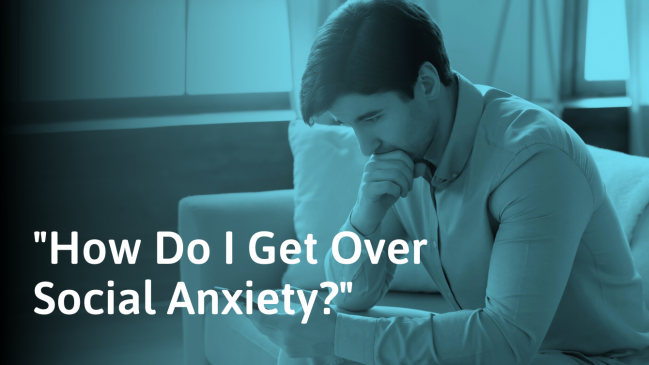

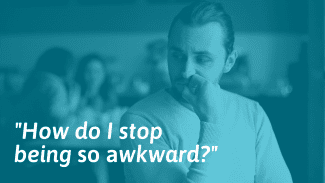



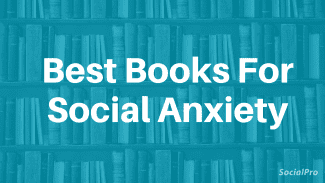
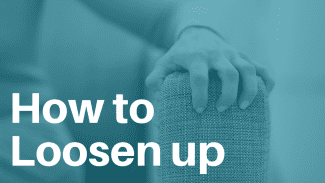
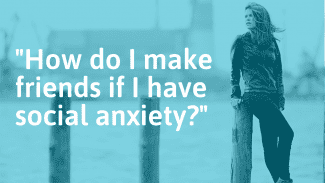
This article is too much of an outside-in approach, the suggestions for how to overcome your anxiety are all about controlling your thoughts and actions rather than actually dealing with the root cause of the anxiety. It’s like putting a band-aid on a deep wound, people don’t just have social anxiety for no reason. You started out so strong in the beginning too, but in the end, the best advice you gave was to talk to a therapist.